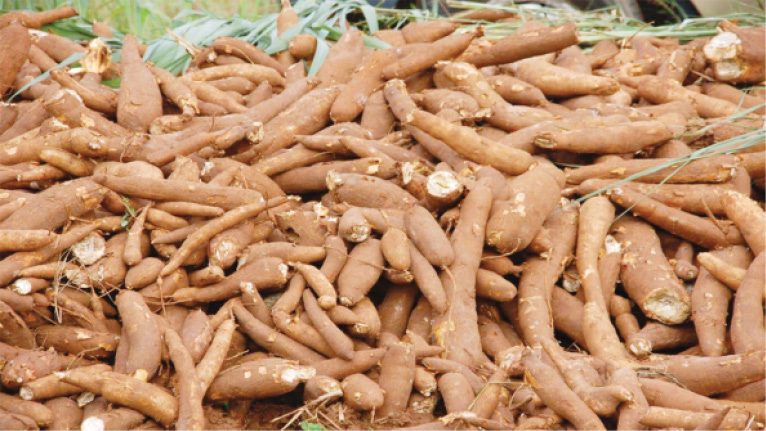Demand for raw, dried cassava hikes prices in Taraba
The high demand for raw and dried cassava has pushed up prices in Taraba State, Daily Trust findings have revealed. Findings across areas where cassava is produced in commercial quantities in the state showed how middlemen from within and outside the state are buying raw and dried cassava in large quantities. Areas where the crop […]

Cassava farming losing ground for market space
The high demand for raw and dried cassava has pushed up prices in Taraba State, Daily Trust findings have revealed.
Findings across areas where cassava is produced in commercial quantities in the state showed how middlemen from within and outside the state are buying raw and dried cassava in large quantities.
Areas where the crop is produced in commercial quantities include Gassol, Bali, Wukari, Jalingo, Kurmi, Ussa and Takum LGAs.
Cassava, which used to be very cheap and a common food among low-income earners in the state, is now the food for everyone.
It was gathered that many people resort to cassava because of its low price, however, demand for the produce from within and outside the state now has pushed up the price to an all-time high.
At Kasuwan Ladi, Pamanga, Garba-Chede, Mutum-biyu, Wukari and Maihula markets, middlemen in their numbers are buying the produce in large quantities.
A 100kg bag of dried cassava that was sold for between N5000 and N8000 last year now costs N35,000.
Similarly, a 100kg bag of raw cassava that was sold last year at N4000 is now sold at N12,000.
Findings revealed that in early July this year, raw cassava was the cheapest food item but gradually the price started going up when many residents opted for it as an alternative.
A trader in Wukari town, Nuhu Adamu, told our reporter that middlemen from different parts of the country are making bulk purchases of raw and dried cassava on a daily basis.
He said every day about 20 truckloads of raw and dried cassava leave the town for different parts of the country.
He said some of the middlemen buy entire cassava farms and harvest the crop themselves compounding the problem of high price of the commodity.
A cassava farmer, Lawal Sani, said he made over N1 million from two of his cassava farms from which in previous years he hardly realised N350,000.
He said cassava production is very simple as it does not require much application of fertilizer and pesticides and that part of the harvest was usually used in feeding the family before other crops are harvested.
“As it is now, cassava production is a good venture because of the high demand for the produce from within and outside the state.
“We are making good fortune from the produce now more than any other time and it is because both the rich and the poor now eat cassava products,” he said.
Findings also revealed that small and large-scale cassava flour factories in the state are not functioning because farmers now prefer to sell their produce in the open market because of the good price they are getting.
